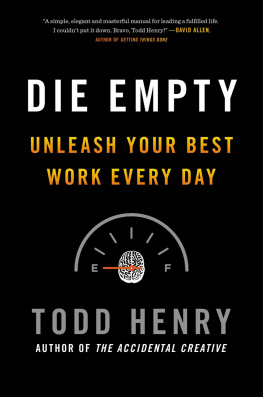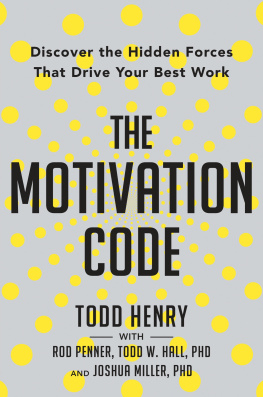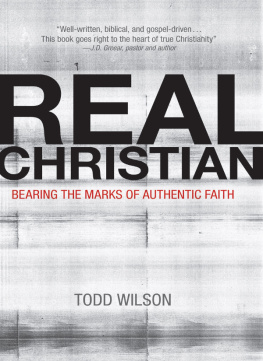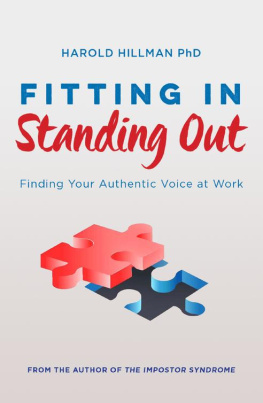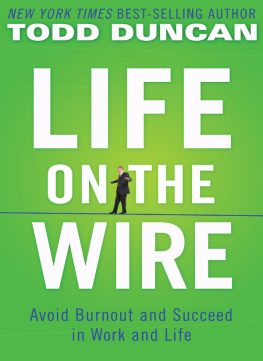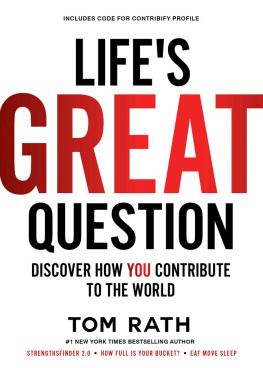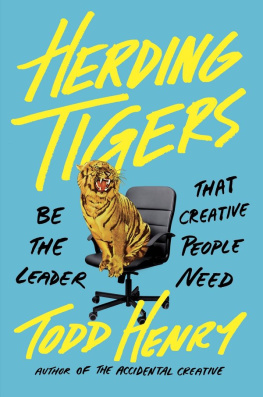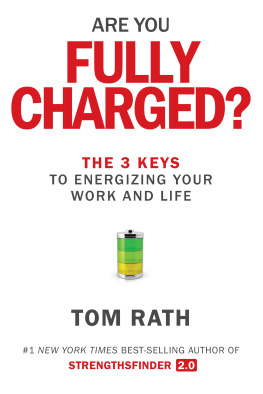Penguin supports copyright. Copyright fuels creativity, encourages diverse voices, promotes free speech, and creates a vibrant culture. Thank you for buying an authorized edition of this book and for complying with copyright laws by not reproducing, scanning, or distributing any part of it in any form without permission. You are supporting writers and allowing Penguin to continue to publish books for every reader.
While the author has made every effort to provide accurate telephone numbers, Internet addresses, and other contact information at the time of publication, neither the publisher nor the author assumes any responsibility for errors or for changes that occur after publication. Further, the publisher does not have any control over and does not assume any responsibility for author or third-party Web sites or their content.
Introduction
When people dont express themselves, they die one piece at a time.
Laurie Halse Anderson, Speak
Your work tells tales. It speaks about you, your values, your hopes, your ambitions, and ultimately what you deem worthy of your energy and attention. It reveals, intentionally or not, what you really think about the world around you. Ultimately, your body of workwhich is any place you create value, whether through your job, your relationships, or any other way you spend your time and energyis a standing testament to your existence on this speck of rock orbiting the sun.
Heres a question worth pondering: While your work speaks about you, does it really speak for you? Does it represent you well? Does it reflect the authentic you? (Or, in your busyness, have you even recently considered who the authentic you might be?) The key to making your work resonate is to uncover, develop, and then bravely use your authentic voice.
What does this mean? When you are pouring yourself into your work and bringing your unique perspective and skills to the table, then you are adding value that only you are capable of contributing. However, many people operate in default mode, and they ignore their hunches, their deeper intuition, and their unique vision, and instead settle into the fold. Over time, they become more of a reflection of everyone around themor a faded photocopy of a photocopythan an original source of ideas, energy, and life. Instead of doing the difficult work necessary to weave their influences together into something fresh and original, they settle for recycling the scraps in exchange for a quick return on their effort. In the end, they fall short of making a unique contribution thats reflective of what they truly care about, and because of a lack of individuality and passion, their work is less likely to resonate with their audience.
However, brilliant contributors commit to the process of developing an authentic voice through trial and error, by paying attention to how they respond to the work of peers, heroes, and even their antagonists, by playing with ideas, by cultivating a sharp vision for their work, and ultimately by honing their skills so that they have the ability to bring that vision to the world. If you examine the most contributive, impactful, and ultimately influential people throughout history, the one thing that clearly sets them apart is their unique voice. They had developed a personal expression that distanced them from their peers and put them in a field of their own. Their body of work speaks loudly about who they are and what they value. Louder, even, than their words.
Whether you are a writer, a consultant, an entrepreneur, an engineer, a manager, or an artist, developing your authentic voice should be a top priority if you are serious about crafting a body of work that will stand the test of time. Work, then, becomes about more than checking off tasks and pushing through projects. Instead, it is a means to carve a place in the world and create value that lasts. It becomes a means of genuine expression and a standing testament to your efforts.
WHAT IS VOICE?
For the purposes of this book, Ill define voice as the expression (idea) you make through a medium (platform) in order to achieve a desired outcome (impact). Whether you are creating a form of art, such as music or painting, or crafting a marketing message to reinforce your brand equity, your objectives will be accomplished by leveraging an expression through a medium, and the more resonant your message is with your audience, the more likely you will achieve your desired impact. Taken together, your collective body of work, as communicated through your voice, represents you, your style, your values, and your intentions.
Truly effective voices resound, meaning that others eventually become carriers of your expression. Ideally, your work will reach far beyond your immediate sphere of influence. However, crafting work that resounds isnt as simple as coming up with a viral meme or a catchy turn of phrase. While these tactics achieve short-term attention, a moment in the spotlight often fails to achieve lasting impact. This is why so many attention-grabbing television commercials never achieve long-term results for their brands. (A quick glance at postSuper Bowl audience survey results reveals that companies have paid millions of dollars for ads that as few as 35 percent of viewers associated afterward with their brand. Worse, a high percentage of viewers attributed them to their competitors. Perhaps the ads were memorable, but the companys voice wasnt distinguished enough from that of the competition to matter.) To resound means that your work connects deeply in some way with your audience, and that they in turn feel a connection to your work thats strong enough to compel them to respond, whether by sharing your work with others or by being mobilized to act in some way. The goal of developing an authentic voice isnt self-gratification, its cultivating a greater ability to mobilize others toward a goal or objective, and in so doing achieve the impact you desire.
Those who are brave enough to dedicate themselves to the effort of discovering their authentic voice are impervious to the temporary cultural noise. Their work is founded upon a deep knowledge of who they are, what they want, and how they plan to achieve it. They have firm footing because they have rifled through the debris and uncovered bedrock. They have learned how to craft their work so that it represents their true selves and resonates with their audience.
HOW TO READ THIS BOOK
Louder Than Words is divided into three sections. The first section addresses the reason many people struggle to develop their voice, and the distinct phases that artists, entrepreneurs, writers, and others have passed through on their journey. The second section addresses what I refer to as the Voice Engine, or the mechanism that allows you to identify, develop, and use your voice to achieve impact. You will learn about the importance of Identity as a driving force for your work, Vision for defining the impact you want, and Mastery as a means of getting your ideas into the world more effectively. The final section offers more practical day-to-day advice for implementing your voice in the course of teamwork, as a leader, and as you plan and shape your work over the long term.
My goal is not to simply inspire you with a new approach to finding your voice but to inspire you to act differently as you shape your work. Though there will be a lot of reflective exercises, this book is written for people who are already moving, and are looking for signposts to help them get even better. This is a book for doers.


